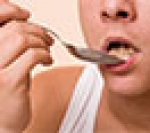Healthcare news
Avocados change belly fat distribution in women, controlled study finds
An avocado a day could help redistribute belly fat in women toward a healthier profile, according to a new study from the University of Illinois Urbana-Champaign and collaborators.
Young adults at highest risk of weight gain
Young adults aged 18 to 24 are at the highest risk of becoming overweight or developing obesity in the next decade of their life compared to adults in any other age group, and obesity
Potential indicator for obesity risk detected during sleep
Throughout the day, we gain energy by breaking down carbohydrates, fats, and proteins in our bodies through the process of metabolism
Scientists claim that overeating is not the primary cause of obesity
A perspective article challenges the 'energy balance model,' which says weight gain occurs because individuals consume more energy than they expend. According to the authors, 'conceptualizing obesity as a disorder of energy balance restates a principle of physics without considering the biological mechanisms underlying weight gain.'
Overweight and obesity may affect asthmatic children's response to inhaled steroids
Asthmatic children are less likely to respond to inhaled steroid medication if they are overweight or obese, and this leads to more frequent asthma attacks, according to research presented at the 'virtual' European Respiratory Society International Congress today.
Obesity and weight loss: Why overall calorie intake may not be so important
Conventional scientific opinion has attributed weight gain to a net surplus of calories due to burning fewer calories than taking in. Opposing this view, the carbohydrate-insulin model states that diet quality matters more for weight loss than total calorie intake.
Wealthy, educated and urban women more prone to being overweight
An international study of 55 countries has shown a marked increase in the number of overweight women globally, with wealthy, educated and urban women heavier than their counterparts.
Impulsiveness tied to faster eating in children, can lead to obesity
Children who eat slower are less likely to be extroverted and impulsive, according to a new study co-led by the University at Buffalo and Children's Hospital of Philadelphia.
Fatty liver more common in children of mothers with obesity
Children and young people whose mothers had a BMI greater than 30 during early pregnancy are at an increased risk of fatty liver disease.
Preventing childhood obesity requires changes in parents` and clinicians` early-life care
Rates of childhood obesity are at historically high levels in the U.S., yet there are few interventions that promote healthy weight gain in children from infancy to age two—a critical period for the development and prevention of childhood obesity.












